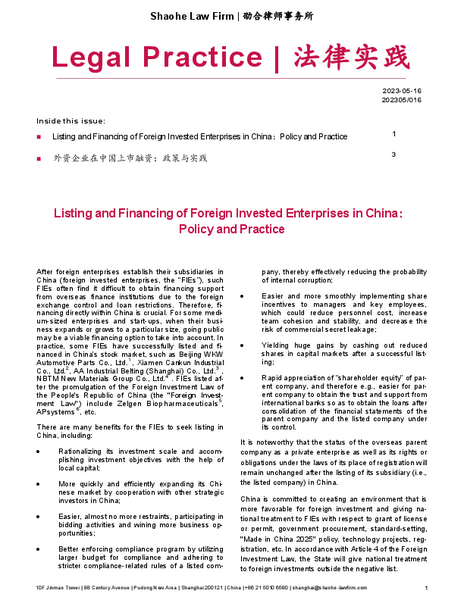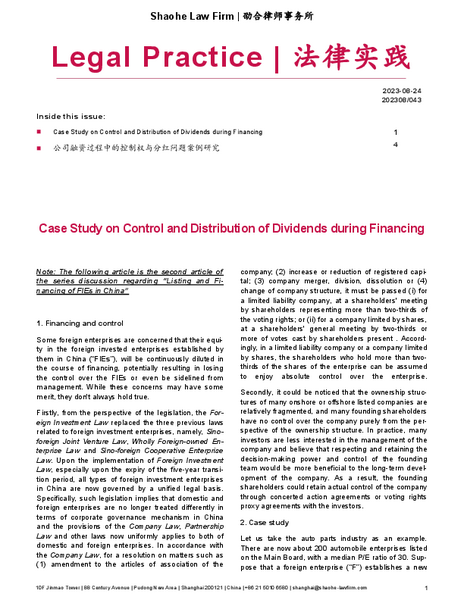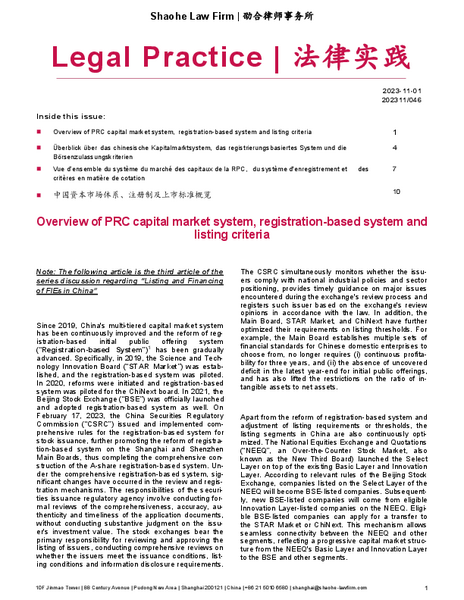
We recommend | Articles about Listing and Financing of Foreign Investment Enterprises in China | Shaohe Law Firm
Today, we would like to recommend the report series regarding the listing and financing of foreign invested enterprises (FIEs) in China by Shaohe Law Firm, which has been published between May 16 and Nov 1, 2023. The full reports, in total three, can be downloaded below. In the following, we would like to share the key takeaways with you.
1. Policy and Practice
For some foreign invested medium-sized enterprises and start-ups, when their business expands or grows to a particular size, going public on Chinese stock markets may be a viable financing option to consider. The reasons have been listed out in the article.
It should be noted that the Chinese government is making an effort to encourage and support the listing and financing of FIEs in China.
In recent years, China's capital market has undergone many systemic changes, which have further optimized the listing threshold and conditions, and created more possibilities for foreign companies to list in China.
2. Control and Distribution of Dividends during Financing
Although the gradual transfer of equity and different rounds of financing might lead to a certain degree of equity dilution for overseas investors, this needn´t be the outcome and is crucial for the further growth and development of enterprises which will be a win-win situation for both the founders and the investors.
If the foreign enterprise insists on being the sole shareholder of it’s FIE, it will be difficult to obtain external financial support over several financing rounds and make greater profits.
The founding shareholders could retain actual control of the company through concerted action agreements or voting rights proxy agreements with the investors.
There is no pre-approval procedure by the government or restriction on distributing dividends to overseas shareholders.
3. Overview of PRC capital market system, registration-based system and listing criteria
Since 2019, China's multi-tiered capital market system has been continuously improved and the reform of the registration-based initial public offering system (“Registration-based System”) has been gradually advanced. Under the comprehensive registration-based system, significant changes have occurred in the review and registration mechanisms.
The responsibilities of the securities issuance regulatory agency only involve conducting formal reviews of the application documents, while the stock exchanges bear the primary responsibility for reviewing and approving the listing of issuers.
The Main Board, STAR Market, and ChiNext have further optimized their requirements on listing thresholds.
Also the listing segments in China are continuously optimized. Subsequently, new BSE-listed companies will come from eligible Innovation Layer-listed companies on the NEEQ. Eligible BSE-listed companies can apply for a transfer to the STAR Market or ChiNext.
For more details, please download the reports below.




